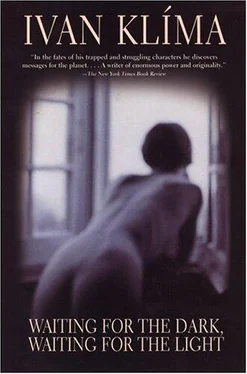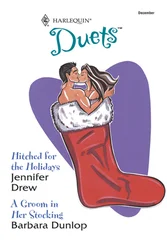1
Tiny flakes of snow swirled in the air, melting the instant they touched people's clothes. The crowd was so densely packed that almost no snow reached the ground. Carrying his camera on his shoulder, Pavel pushed his way through the people until he reached the statue of the country's patron saint. They had hung flags on it and surrounded the saint with flowers and burning candles, and stuck posters on the pedestal demanding free elections, democracy, the end of one-party rule, dialogue, freedom of expression and information, the dismantling of the People's Militia, solidarity with the students, a general strike and the resignation of the government. Only a few days ago no one would have dared voice a single one of those demands, let alone write them down and post them up in the centre of the city. And even if someone had dared to do so, the poster would have disappeared before anyone had had a chance to read it.
The demonstrations had been going on for five days now. On the first day, the police had attacked a student march with such fury that they had wounded many of the participants and onlookers. How many had really been hurt, he didn't know, nor did anyone else. Official reports could not be believed, many of the wounded were afraid to seek medical help and doctors preferred not to reveal how many they had treated. Either the cruelty of the police had gone beyond bearable limits, or the present regime's time had simply come without its even noticing. The students declared a strike, were joined by actors and supported by everyone Pavel knew from earlier demonstrations, and this time they in turn were supported by all those who had so far remained silent. There were so many of them that only gunfire could have scattered them now.
He watched with amazement, or rather with suspicion, this strange transformation by which those who had so recently been beaten and doused with jets of water now addressed the assembled crowds, and those who had until recently been silenced and bowed now cheered, clenched their fists, raised two fingers in the victory salute and rattled their keys in anticipation of victory.
What was victory?
The illusory hope that a dream could last; the mad dance of those who are about to die, on the graves of those who have just died. It was a state in which the weeping and wailing of victims was drowned out by shouts of joy.
In the faces of people, he saw an ecstasy that he had seldom witnessed.
He looked around for the familiar faces but could not see them. The people who filled the square now had obviously swarmed out of places he had never been. They were an alien people, yet he found their excitement infectious, to the point where he had to remind himself that he was here to record the event, not to join in. If anything excited him, it should be the possibility that what he was filming might actually reach television viewers. For the past two days he'd gone around with Sokol, who had suddenly become a man of action. He forced his way into striking schools, tirelessly asking people questions without trying to second-guess their answers as he always had in the past.
And now Sokol was thrusting the microphone into the face of a plump older woman. He had selected, perhaps unconsciously, a type he chose to interview during the May Day celebrations every year. 'What do you do?' he asked her.
'I work on a cooperative farm.'
'Great! And what exactly do you do there?'
'I milk the cows.'
'So you've come from far away?'
'I have a daughter studying here. It's not right for them to beat our children.'
People gathered round to listen.
'It's enough what they've beaten into us. They hauled my father off to the uranium mines. Do you know why?' She was getting ready to launch into her life story. But now wasn't the time for life stories. Pavel panned his camera into the crowd where a little boy was perched on a man's shoulders waving a flag.
He could hear chanting down the square: 'We want truth! We want truth!'
The little boy shouted something too. His voice was lost in the swell of other sounds, but he seemed to be joining in the chant.
What was truth?
Sokol had now turned his microphone to a young man in blue overalls.
Until now the belief had been that truth was what you found in the pockets of workers' overalls, under miners' helmets and in the heavy gloves of steelworkers.
The young man announced that his workmates in the factory supported the students. He'd come here to demonstrate for genuine socialism.
What did he understand by that?
Justice, free elections. Not to have the police beating innocent people. The right to travel.
The demonstration was almost over. When he was carrying his camera to the car, he finally saw a familiar face, and smiled broadly. 'Alice, what are you doing here?'
'Surely you didn't think I'd be sitting at home at a time like this?'
They walked together down the square. The crowd was gradually thinning out.
'Do you remember that time, long ago, right here. . when we first met?'
'Yes. It was far more hopeless then. That was the beginning of the darkness.'
'Do you think the light is coming now?'
'You don't think it is?'
He shrugged. 'I have almost no time to think now. We're filming from early morning into the night. As a matter of fact, I haven't had a thing to eat since breakfast.'
She put her arm through his just as she had twenty-one years ago, except that then there were three of them.
They found an empty table in a small restaurant just below the square. A television in the corner of the room was still showing the demonstration. 'You've done a tremendous job,' she said, gesturing towards the television set. 'People who can't come to the city will learn what's really going on.'
'Did you leave Peter at the castle?'
'I haven't seen him for about three days. He simply vanished. He's in meetings somewhere.' She didn't seem anxious to talk about him.
'What about the children?'
'They're with their grandmother. We're taking turns. It's her turn to come here tomorrow.'
You're being very responsible about it.'
'But there's so much at stake,' she said. 'It's about how we're going to live from now on. If we lose now, we'll lose the opportunity for years to come. You don't see it that way?'
'I told you, I don't have time to think.'
You're making excuses, Pavel.'
You say "if we lose". Who are "we"?'
'"We" means all of us, doesn't it?'
'All the people can't lose all the time, and all the people can't win all the time either.'
'It would never occur to me to look at it that way.'
'I'm not looking at it any way. I'm only saying that usually some win and others lose. Sometimes it turns out that the ones who lose are those who thought they had won, and vice versa. '
You're being disgustingly objective about this, or at least you're pretending to be. Doesn't any of this concern you?'
The waiter put two glasses of wine on the table. 'Will you be leaving your castle now?' Pavel asked.
'Probably. If all this works out. But to tell you the truth, I can hardly imagine leaving. And anyway, I asked you a question: what about you?'
Why was she asking him? Was it out of interest in him? Or was it rather with a sense of malicious satisfaction that now it would be his turn to suffer for a change?
'It does concern me. Don't you think I want to work freely? What I don't know is: will I be able to work freely if things do turn out well?'
'Do you think you've lost the knack?'
'I hope not. But what if the winners decide to include me among the losers? What can I do then?'
'You're talking nonsense. You'd finally do what you do best and you'd do it the way you wanted to.'
Читать дальше











